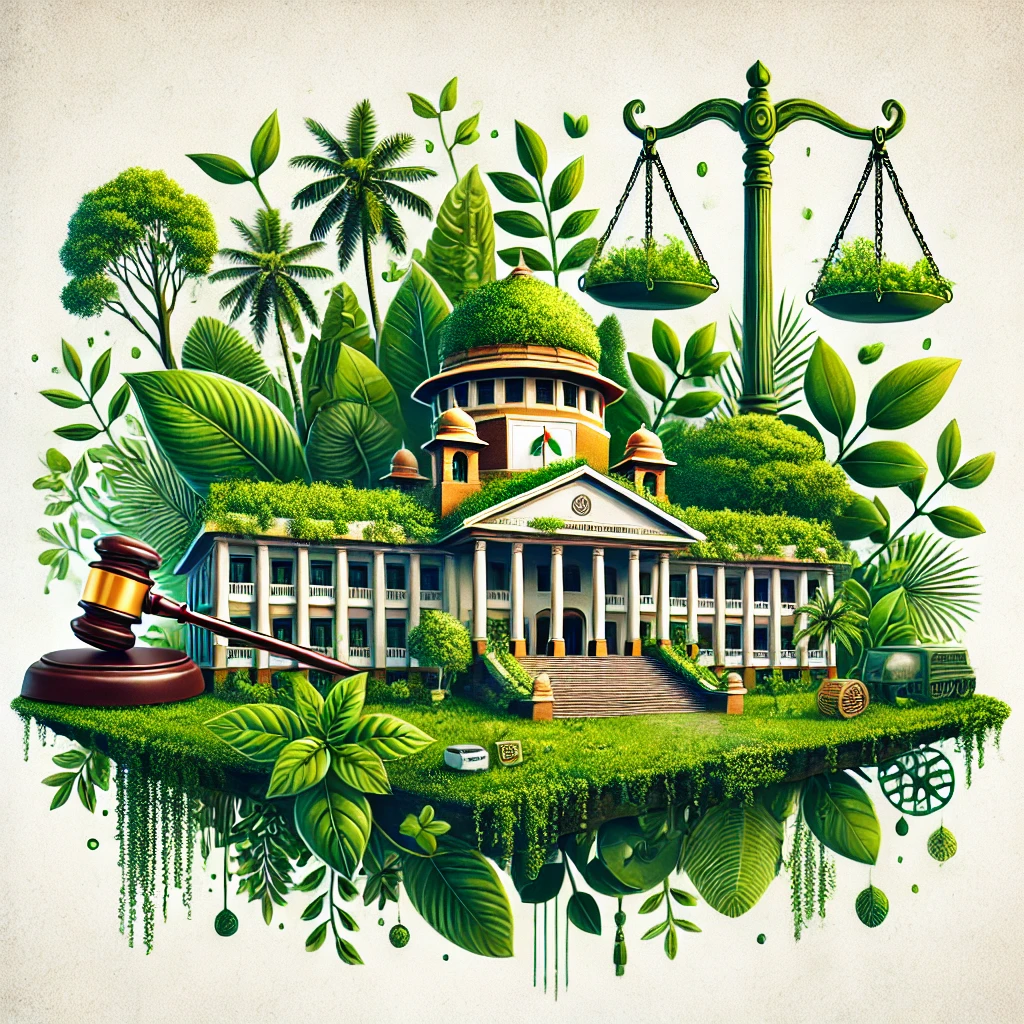Environmental laws at Mozambique
Mozambique, a country located in southeastern Africa, has developed a variety of environmental laws and regulations to address the challenges of biodiversity conservation, pollution control, land management, and climate change. The country’s environmental legislation is influenced by both national priorities and international commitments, such as the United Nations Sustainable Development Goals (SDGs) and regional frameworks like the Southern African Development Community (SADC) protocols. Below is an overview of the environmental laws and regulations in Mozambique.
1. The Constitution of Mozambique (2004)
Environmental Protection as a Fundamental Right: The Constitution of Mozambique (Article 89) recognizes the right of citizens to a healthy and ecologically balanced environment. It places a responsibility on the government to promote environmental protection and sustainable development.
Sustainable Development: The Constitution establishes the principles of sustainable development and mandates that economic development should not come at the expense of environmental integrity.
Public Participation: It emphasizes the involvement of local communities in environmental decision-making, promoting community-based management of natural resources.
2. The Environmental Law (Law No. 20/97, 1997)
The Environmental Law (No. 20/97, enacted in 1997) is a cornerstone of Mozambique's environmental legislation. It provides the legal framework for environmental protection and sustainable natural resource management in the country.
Key provisions:
Environmental Protection and Sustainable Use of Resources: The law sets out principles for the sustainable management of the environment, including the conservation of natural resources and the promotion of environmental sustainability.
Environmental Impact Assessment (EIA): The law requires that an Environmental Impact Assessment (EIA) be conducted for projects that may cause significant environmental harm, including major industrial, infrastructural, and agricultural developments.
Pollution Control: The law includes measures for controlling pollution of air, water, and soil. It also sets emission limits for industrial activities and promotes cleaner production technologies.
Ecosystem Protection: The law mandates the protection of ecosystems, wildlife, and natural habitats.
3. The Law on Forestry and Wildlife (Law No. 10/99, 1999)
The Law on Forestry and Wildlife (No. 10/99) is designed to regulate the use of forest resources, wildlife conservation, and the management of protected areas in Mozambique.
Key provisions:
Sustainable Forestry Management: The law requires sustainable practices for timber extraction, ensuring that logging does not deplete forest resources and biodiversity.
Wildlife Conservation: The law regulates hunting and wildlife management, aiming to conserve species and habitats that are threatened or endangered.
Protected Areas: The law establishes and regulates national parks and other protected areas to safeguard biodiversity.
Community-Based Management: The law encourages local communities to participate in the management of forest and wildlife resources, including through the establishment of Community-Based Natural Resource Management (CBNRM) programs.
4. The Water Law (Law No. 16/91, 1991)
The Water Law (No. 16/91) regulates the use, conservation, and management of water resources in Mozambique. This law aims to ensure sustainable water use and to protect water bodies from pollution and over-exploitation.
Key provisions:
Water Resources Management: The law establishes principles for managing the country’s water resources, including the regulation of water use for domestic, agricultural, and industrial purposes.
Pollution Control: It sets out measures to prevent pollution of water bodies and establishes the responsibility of industries to treat and safely discharge wastewater.
Water Quality Standards: The law establishes standards for water quality and requires industries and municipalities to comply with these standards.
Equitable Access to Water: The law promotes equitable access to clean water for all citizens, recognizing the need to protect vulnerable communities from water scarcity.
5. The Law on Land (Law No. 19/97, 1997)
The Law on Land (No. 19/97) is fundamental in regulating the ownership and use of land in Mozambique. Land is considered a public asset, and the law guarantees communities the right to land use and management, promoting community participation in land governance.
Key provisions:
Land Tenure: The law guarantees land tenure rights to local communities, especially in rural areas, and emphasizes community-based land management.
Sustainable Land Use: The law promotes sustainable land-use practices to prevent land degradation and ensure food security, particularly in the context of agriculture and natural resource management.
Protection of Soil: It addresses issues such as soil conservation, the prevention of desertification, and land rehabilitation.
6. The Environmental Impact Assessment (EIA) Decree (Decree No. 45/2008)
Decree No. 45/2008 regulates the process for conducting Environmental Impact Assessments (EIA) in Mozambique, ensuring that potentially harmful projects undergo environmental scrutiny before approval.
Key provisions:
EIA Requirement: The decree mandates that all major development projects, including mining, energy, infrastructure, and agriculture, must conduct an EIA to assess their potential environmental and social impacts.
Public Participation: The decree includes provisions for public consultation during the EIA process, allowing affected communities and stakeholders to raise concerns and provide input.
Mitigation Measures: It requires that projects implement measures to mitigate negative environmental impacts identified during the EIA process.
7. The Law on the Protection of the Environment from Chemical Substances (Law No. 2/2004)
This law regulates the use, handling, and disposal of chemical substances in Mozambique to minimize their harmful impacts on human health and the environment.
Key provisions:
Chemical Waste Disposal: It sets guidelines for the safe disposal of chemical waste and the management of hazardous chemicals used in industries like mining and agriculture.
Public Health: The law includes provisions aimed at protecting public health from the effects of exposure to hazardous chemicals.
International Conventions: Mozambique is a signatory to various international treaties concerning the safe management of chemicals, and this law helps ensure national compliance.
8. The Mining Law (Law No. 14/2002, 2002)
Mozambique’s Mining Law (No. 14/2002) regulates the exploration, extraction, and management of mineral resources in the country, emphasizing the need to minimize environmental degradation caused by mining activities.
Key provisions:
Environmental Protection: The law requires mining companies to conduct Environmental Impact Assessments (EIA) and to implement measures to protect the environment during exploration and extraction activities.
Rehabilitation of Mining Areas: It includes provisions for rehabilitating mining areas after extraction has finished, ensuring that ecosystems are restored and that mining waste is properly managed.
Community Engagement: The law promotes the involvement of local communities in the decision-making process related to mining projects.
9. The National Climate Change Strategy (2012)
Mozambique’s National Climate Change Strategy outlines the country’s approach to addressing the impacts of climate change through mitigation and adaptation actions.
Key provisions:
Mitigation Actions: The strategy identifies measures to reduce greenhouse gas emissions, particularly in sectors like energy, agriculture, and transportation.
Adaptation Measures: It also outlines strategies to adapt to the impacts of climate change, including the promotion of climate-resilient agriculture, water management, and coastal protection.
Integration into National Policies: The strategy emphasizes integrating climate change considerations into national development plans, sectoral policies, and local development strategies.
10. International Environmental Agreements
Mozambique is a party to several key international environmental agreements, including:
The Paris Agreement: Mozambique has committed to reducing its greenhouse gas emissions and taking climate adaptation actions under this global climate agreement.
The Convention on Biological Diversity (CBD): Mozambique participates in global efforts to protect biodiversity and conserve ecosystems.
The Ramsar Convention on Wetlands: Mozambique is committed to the conservation and sustainable use of wetlands, particularly in relation to its coastal and freshwater ecosystems.
The United Nations Convention to Combat Desertification (UNCCD): The country is involved in international efforts to combat desertification and land degradation, which are critical issues in some of Mozambique's dryland areas.
Enforcement and Challenges
Enforcement: The National Directorate of Environmental Quality and other government agencies, including the Ministry of Land, Environment and Rural Development, are responsible for enforcing environmental laws in Mozambique. The Environmental Inspectorate plays a key role in monitoring compliance and taking enforcement actions against violators.
Challenges:
Deforestation: Illegal logging and the expansion of agriculture are significant drivers of deforestation in Mozambique, threatening biodiversity and contributing to soil erosion and climate change.
Pollution: Air and water pollution, especially from industries and mining activities, pose environmental and public health risks.
Climate Vulnerability: Mozambique is highly vulnerable to climate change, including extreme weather events like cyclones and droughts, which threaten agriculture, infrastructure, and communities.
Biodiversity Loss: Despite efforts to conserve wildlife and habitats, the country faces threats to its biodiversity, particularly from poaching, habitat destruction, and over-exploitation of natural resources.
Conclusion
Mozambique has established a comprehensive set of environmental laws that aim to protect its natural resources, address pollution, conserve biodiversity, and mitigate the impacts of climate change. The country has made significant progress in environmental governance, but challenges such as deforestation, pollution, and vulnerability to climate change remain. Effective enforcement, public awareness, and stronger regional and international cooperation will be essential for achieving the country’s long-term environmental goals.












comments